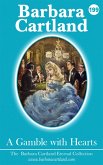In "A Gamble with Life," Silas K. Hocking offers a thought-provoking exploration of the dichotomy between ambition and morality through the lens of a gripping narrative. Set against the backdrop of the late 19th-century societal upheaval, the novel is rich in vivid imagery and intricate character development, deftly weaving themes of personal sacrifice and the complexities of human relationships. Hocking's literary style is characterized by its articulate prose, punctuated by philosophical musings that invite readers to ponder the ethical dilemmas faced by his characters on their tumultuous paths. Silas K. Hocking, a prominent figure in Victorian literature, drew on his own experiences as a minister and social reformer to infuse the narrative with moral quandaries and socio-political commentary. His deep engagement with the struggles of the working class and the influence of religious convictions provided a wellspring of inspiration, imbuing the story with a sense of realism and urgency. Hocking's unique perspective as a preacher grappling with faith and existential questions resonates throughout the text, elevating it beyond mere storytelling to a meditation on the human condition. This novel is highly recommended for readers who seek a profound exploration of ethical dilemmas amidst a riveting plot. Hocking's ability to merge an engaging narrative with philosophical inquiry makes "A Gamble with Life" not just a novel, but a reflective journey that will resonate with anyone intrigued by the intersections of morality, life choices, and the pursuit of happiness.
Dieser Download kann aus rechtlichen Gründen nur mit Rechnungsadresse in A, B, BG, CY, CZ, D, DK, EW, E, FIN, F, GR, H, IRL, I, LT, L, LR, M, NL, PL, P, R, S, SLO, SK ausgeliefert werden.









